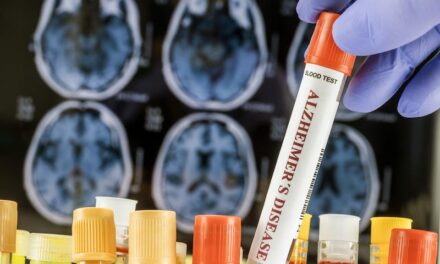Summary: Mount Sinai Health System will deploy blood-based biomarkers for early Alzheimer’s and dementia detection, as part of the Davos Alzheimer’s Collaborative Accurate Diagnosis project.
Takeaways:
- Innovative Detection Tools: Mount Sinai will use blood-based biomarkers to detect Alzheimer’s disease earlier, improving patient outcomes and accessibility.
- Clinical Impact: The project aims to recruit 900 patients and explore the real-world implementation of noninvasive and cost-effective diagnostic methods for Alzheimer’s and related dementias.
- Collaborative Effort: As part of a global initiative, Mount Sinai will share insights with other leading institutions to drive best practices for early dementia detection and diagnosis across healthcare systems worldwide.
Mount Sinai Health System announced it will deploy blood-based biomarkers and confirmatory tests for Alzheimer’s disease and related dementias to patients across primary and specialty care settings—early detection tools that have never before been offered to patients in the clinical setting—as part of the Davos Alzheimer’s Collaborative (DAC) Healthcare System Preparedness Accurate Diagnosis project.
An Initiative to Cure Alzheimer’s Disease
DAC is a pioneering worldwide initiative seeking to cure Alzheimer’s disease and dementia. The effort at Mount Sinai, part of this initiative, will be co-led by Fanny Elahi, MD, PhD, director of fluid biomarkers at the Maurice Deane Center for Wellness and Cognitive Health at Mount Sinai, and Georges Naasan, MD, Co-Medical Director of the Deane Center.
“Knowledge gained from blood-based biomarkers of Alzheimer’s and related dementias provides a unique opportunity for early disease detection and consequently, intervention, and will enable implementation of existing treatments as well as discovery of novel therapeutics,” says Elahi, associate professor of Neurology and Neuroscience at the Icahn School of Medicine at Mount Sinai. “Our work with the DAC Accurate Diagnosis project will not only help us stratify patients rapidly, noninvasively, and cost-effectively, but also shed light on the best practices for implementation of these revolutionary diagnostic tests in real-world clinical settings. We are excited to bring blood-based biomarkers to the clinic.”
Evolution of Alzheimer’s Diagnosis
The treatment of Alzheimer’s disease has moved into a new era with the introduction of new therapies that target underlying disease biology, but these therapies need to be introduced early in the disease course in order to have the most benefit. The current gold standard for the accurate diagnosis of neurodegenerative disease pathology in the brain are positron emission tomography (PET) scans of amyloid (the protein buildup in the brain that is a hallmark of the disease) and analysis of proteins in cerebrospinal fluid—both of which are invasive, expensive and not widely available, particularly in economically disadvantaged regions. However, because pathological processes in the brain produce proteins that leak into the bloodstream, early detection is possible from a simple blood draw.
“Clinicians have been waiting for a long time for ways to confirm the presence of Alzheimer’s disease biomarkers that do not pose risks to patients or financially strain the health system. This project is a first step in this direction and has the potential of revolutionizing clinical care for Alzheimer’s disease,” says Naasan. “Blood-based biomarkers also have the potential of becoming the tests needed to select patients for targeted therapies, including the newly FDA-approved monoclonal antibodies, which currently can only be administered to those who obtain a PET scan or a spinal tap that confirms the presence of Alzheimer’s disease.”
Through a $1.3 million grant from the Davos Alzheimer’s Collaborative, Elahi and Naasan will lead a team of physicians, nurses, social workers, and clinical research coordinators from Mount Sinai to recruit 900 patients over the next nine months as part of this project. Patients will be recruited from the hospital’s Barbara and Maurice Deane Center for Wellness and Cognitive Health (the Deane Center), the hospital-based memory loss center and from the hospital’s geriatric and primary care clinics and followed for six months afterward. Mount Sinai is one of the largest academic health systems in the New York metro area, with a strong track record of enrolling both socioeconomically and racial-ethnically diverse patients into research studies, says the health system. This will prove incredibly helpful in informing the most effective ways to transition these blood-based biomarkers from the research world, which tends to have a high level of homogeneity, to the highly diverse real world, Elahi says.
“Many people think of the protein amyloid-beta as the culprit associated with Alzheimer’s disease pathology; however, we now know that pathological forms of the protein tau are the more toxic substrates of disease. We are utilizing a biomarker that captures a toxic form of this protein and also predicts brain deposits of amyloid-beta. The p-tau 217 will be the primary biomarker in this study, and we will also examine levels of two more proteins (NfL and GFAP) that indicate whether the brain is degenerating,” Elahi added. “Notably, these additional proteins are not specific to any subtype of disease. Their levels go up across the spectrum of brain degenerative disorders from dementia-causing disease to multiple sclerosis, and infection- or concussion-related brain dysfunction. By quantifying three proteins in blood, we will be able to determine risk of Alzheimer’s disease as well as brain degeneration of any cause.”
The Mount Sinai Team’s Strategy
The Mount Sinai team will be utilizing the LucentAD p-Tau 217 assay, a non-invasive blood test that relies on quantitation of the tau isoform that is phosphorylated at the 217 amino acid residue (p-Tau 217) in plasma. This quantification provides rule-in/rule-out data that could impact final diagnosis of Alzheimer’s disease in patients with cognitive impairment. Lucent Diagnostics, the commercial brand of Quanterix, is powered by ultra-sensitive Simoa technology that bridges the gap between research and clinical implementation. The Mount Sinai team chose Lucent as their industry partner because they were able to provide highly accurate tests for all three proteins.
“This project is critical for providing noninvasive, low-cost testing options and improving how we diagnose and treat these disorders,” says Elahi. “What we’re measuring today is just a tip of the iceberg of so much more to come. There are numerous additional pathologies for which my lab and others are developing novel biomarker tests. Moving detection of brain degenerative disorders to blood is an incredible leap forward toward slowing down disease progression and ultimately, developing cures for dementia-causing pathologies.”
Mount Sinai will share learnings with the Davos Alzheimer’s Collaborative Healthcare System Preparedness project in regular community-of-practice meetings throughout the 18-month project. To benefit other health systems interested in adopting similar efforts, the learnings and practical resources from the Accurate Diagnosis project will be shared as part of the Davos Alzheimer’s Collaborative Early Detection Blueprint.
Other sites participating in the Accurate Diagnosis project include: University of Kansas Health System and University of Kansas Alzheimer’s Disease Research Center; Wake Forest University School of Medicine; Alzheimer Center Amsterdam at Amsterdam University Medical Center; Imperial College London and Imperial College Healthcare NHS Trust; Ludwig-Maximillians University (LMU) Hospital Munich–Alzheimer’s Therapy and Research Center; and Tokyo Metropolitan Institute for Geriatrics and Gerontology.





